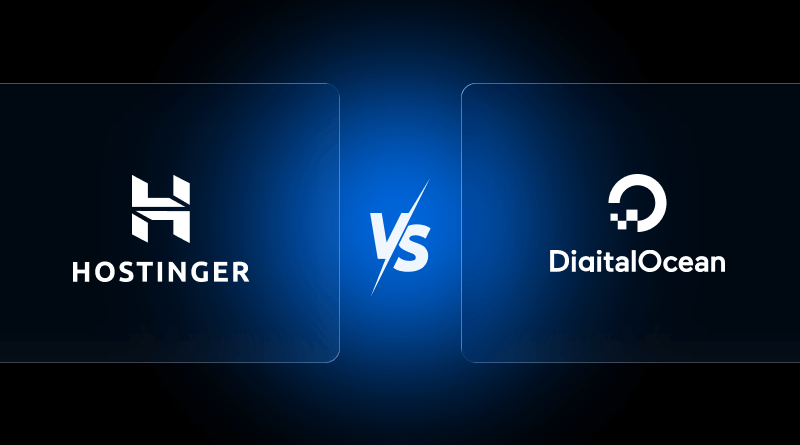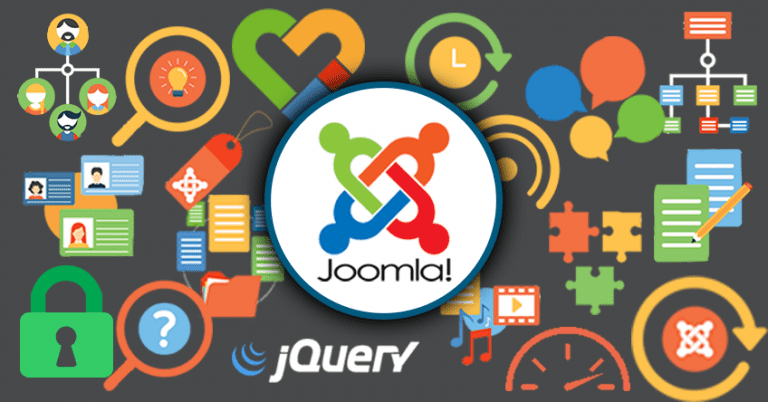When selecting a hosting service, two names commonly appear: Hostinger vs DigitalOcean. On the one hand, there is a hosting provider designed to be easy-to-use and budget-friendly, catering to blogging platforms and small businesses. On the other hand, there is a cloud infrastructure provider that is designed for developers and scalable applications. In a DigitalOcean vs Hostinger review, both have strengths and weaknesses.
In this article, we will compare Hostinger vs DigitalOcean pricing and performance, which is beneficial for both beginners and developers. During this process, you will get answers to some of the most frequent questions that should be considered in a web hosting comparison.
Table Of Content
DigitalOcean vs Hostinger: What They Are and Who They Target
Hostinger
Hostinger platform is a user-friendly, all-in-one hosting with shared, cloud, and VPS hosting options. It’s a more conventional web host (though it has cloud and VPS plans too), prioritizing ease of access to hosting. For the most part, plans come with freebies, such as free SSL, a domain (for the first year), email, staging, and caching.
The interface (hPanel) is friendly, and the setup process is generally very easy. In short, it’s built to manage hosting itself and allow users to remain worry-free of technical details.
Hostinger frequently ranks highly in web hosting comparisons for ease of use, cost, and bundled features (SSL, in many plans, daily backups).
DigitalOcean
DigitalOcean is one of the more popular Infrastructure as a Service (IaaS) platforms. The key part of DigitalOcean is its “Droplets”, which are virtual servers with full root/SSH access. You’re able to achieve pay-as-you-go pricing, APIs, snapshots, load balancing, block storage, private networking, managed databases, Kubernetes, etc.
Due to all these factors, DigitalOcean vs Hostinger is often seen as a comparison between infrastructure vs managed convenience. DigitalOcean expects you to manage more yourself (security, backups, scaling).
Comparing Prices: Hostinger and DigitalOcean Pricing
Let’s discuss traditional pricing structures and cost structures related to Hostinger vs DigitalOcean pricing and performance.
Hostinger Pricing
- Hostinger’s shared hosting prices start from extremely low intro pricing (eg, roughly £3.36/month) for simple websites.
- VPS / cloud / managed pricing usually includes add-ons, such as SSL, backups, a domain, and so forth.
- Hostinger offers a 30-day money-back guarantee on several plans.
- Hostinger has fixed monthly or multi-year contracts (with promotional pricing for longer-term contracts).
DigitalOcean Pricing
- DigitalOcean uses a pay-as-you-go model: you pay based on the resources (CPU, RAM, storage, data transfer, etc).
- The entry-level Droplet starts approximately at £4.48 per month (or equivalent) for 1 vCPU and 1 GB of RAM.
- Extra services (snapshots, managed databases, load balancers, backups) are billed separately.
- Due to this modular model, costs can vary much more flexibly.
Which is most cost-effective?
- For very simple websites, Hostinger’s shared plans often end up cheaper overall because of bundled features (SSL, backups, domain).
- But for larger, cloud‑scale sites, DigitalOcean can be more cost‑efficient because you only pay for what you use, and you can scale more granularly.
In many host comparisons, Hostinger is seen as “cheaper for beginners / small sites,” while DigitalOcean’s value emerges for larger or variable workloads.
Performance, Speed, & Uptime (Hostinger vs DigitalOcean Performance)
During in-depth assessment of Hostinger and DigitalOcean performance, several metrics come into picture, including server speed (response latency), throughput, uptime/downtime, and consistency under load.
– Uptime & Reliability
- Hostinger platform claims to have around ~99.9% uptime on many of its plans. Whereas DigitalOcean, a Hostinger alternative, commits to a better SLA on many of its services: e.g., 99.99%
- Recommended for Droplets and block storage. In real-world tests, some users reported that the DigitalOcean platform is noticeably more reliable during high-traffic periods.
- However, both perform well in “typical use”: Often, there are not multiple instances of severe downtimes in user experience (isolated incidents are certainly possible).
– Speed / Response Times & Latency
- DigitalOcean tends to outperform Hostinger in raw response speeds, especially in well-tuned environments, because you have more control over the stack (caching, system tuning, etc.).
- Some reviews indicated slightly higher average loading times of just under ~400ms based on Hostinger’s infrastructure.
- DigitalOcean hosting plans feature SSDs, an optimized kernel, and improved peering, which help reduce latency, especially if you’re closer to your target audience.
- However, if you are not optimizing your server to cache, compress, add a CDN, or tuning the database, you may lose a significant advantage.
– Load Handling and Scaling
- DigitalOcean’s infrastructure is designed for variable load; you can add more Droplets, use a load balancer, and autoscale (by adding external tools).
- Hostinger does provide scaling in its VPS / cloud plans, but it does not offer as much flexibility due to more managed constraints.
- DigitalOcean tends to be reliable if you are under load and have built for it; Hostinger can suffer slowdowns on shared resources if you hit your limits.
So, if you were to compare Hostinger vs DigitalOcean in terms of performance, DigitalOcean tends to win out if you’re really good at managing servers. However, for many websites, Hostinger’s offer is good, and the built-in optimizations can benefit overall workflows.
Comparing Hostinger vs DigitalOcean for Beginners

If you’re new, don’t have extensive server knowledge, just want the simplest setup possible, how do they stack up?
– Usability & Ease of Setup
- Hostinger is designed for beginners. The hPanel interface is user-friendly. Domain, SSL, email, backups, staging, and caching are all either preconfigured or have community support for quick one-click configuration.
- DigitalOcean is more in the weeds. In normal configuration, you typically set up the stack (Linux, web server, security, etc.) yourself unless you use one of their one-click apps. There is a learning curve here.
- In a Hosting Comparison with beginners in mind, Hostinger usually wins for user-friendliness, onboarding, and support.
– Risk & Support
- Hostinger offers a 30-day money-back guarantee, which creates a safety net for beginners.
- DigitalOcean has less of that cushion; you primarily pay for what you use, and an accidental misconfiguration can be expensive (potentially downtime, security, etc.)
- The support provided by Hostinger (live chat, managed help) has fewer obstacles for non-tech users. DigitalOcean’s support is more developer-providing (ticket system, community, documentation).
Hostinger vs DigitalOcean for Developers and Scalable Apps
As soon as you build anything more complex, apps, APIs, microservices, or general scaling, there are differences that many consider when comparing Hostinger vs DigitalOcean for developers.
– Control vs Flexibility vs Tools
- DigitalOcean provides root/SSH access, APIs, control via the command line, modular services (like databases, storage, and load balancers), custom networking, etc. That type of flexibility is attractive and useful to developers.
- You can deploy, auto-scale, and CI/CD pipelines, providing a seamless experience in your container service environment.
- With Hostinger, those flexibilities disappear or are limited because it’s more managed, with less control over kernel-level settings and network configurations, and isn’t so scalable.
In the web hosting comparison for developers, DigitalOcean is typically the winner for customization and control.
– Scalability & Growth
- DigitalOcean is designed for growth. You can provision resources more easily, cluster your servers, use load balancing, and autoscale (via external tooling) as you have modular services.
- The scalability of Hostinger is vertical (larger plans) and manual; you may hit ceilings and either have to migrate your app or switch to a provider that offers those flexibilities.
For first-time users or those hosting a smaller website, Hostinger is likely the best option thanks to a simple setup process, low-cost prices, and the inclusion of certain extras without any additional charges. Hostinger works very well for personal blogs, portfolios, and small business websites.
For developers working on intensive applications or projects that require scaling, DigitalOcean clearly provides a level of control, customization, and scalability that Hostinger struggles to provide.
The question becomes how much you want to manage and how far you can take your project. Choose your web host after in-depth research and align its offerings with your core requirements.
FAQs
1. Does either provider offer a free trial or money-back guarantee?
Hostinger provides a 30-day money-back guarantee on many of its hosting plans, allowing users to test everything risk-free. DigitalOcean generally does not advertise a free trial or money-back guarantee. You pay for whatever you spin up, which provides less of a refund buffer.
2. Which hosting platform caters best tools for seasoned developers or for deploying scalable applications?
DigitalOcean puts everything in your control: modular infrastructure (VMs, load balancers, storage), APIs, and scalability. In a proper DigitalOcean vs Hostinger comparison, DigitalOcean is built for that use case. Hostinger is more appropriate for users who want to “not deal” with the infrastructure, but it does not provide the same flexibility or scalability.
3. What are the raw performance comparisons (e.g., speed/uptime) of Hostinger and DigitalOcean?
When it comes to uptime, DigitalOcean tends to have higher uptime rates (99.99% SLA) compared to Hostinger (99.9% SLA). In addition to uptime, DigitalOcean tends to have lower speeds/latency (with the caveat that they are well-configured), while Hostinger may be commensurate with standard use but lacks in higher load or custom situations. In the real world, DigitalOcean has performed slightly better under pressure, but Hostinger’s performance is acceptable for average websites.
4. Which provider has better scaling resources (up and down) as my needs change?
DigitalOcean is more flexible in scaling by adding/removing droplets, storage, load balancers, and autoscale. Hostinger is more of a vertical scaling (growing bigger plan) and often requires more manual interventions than simply moving up a notch. This is where DigitalOcean takes the lead with its flexible, dynamic, and scalable resources.














